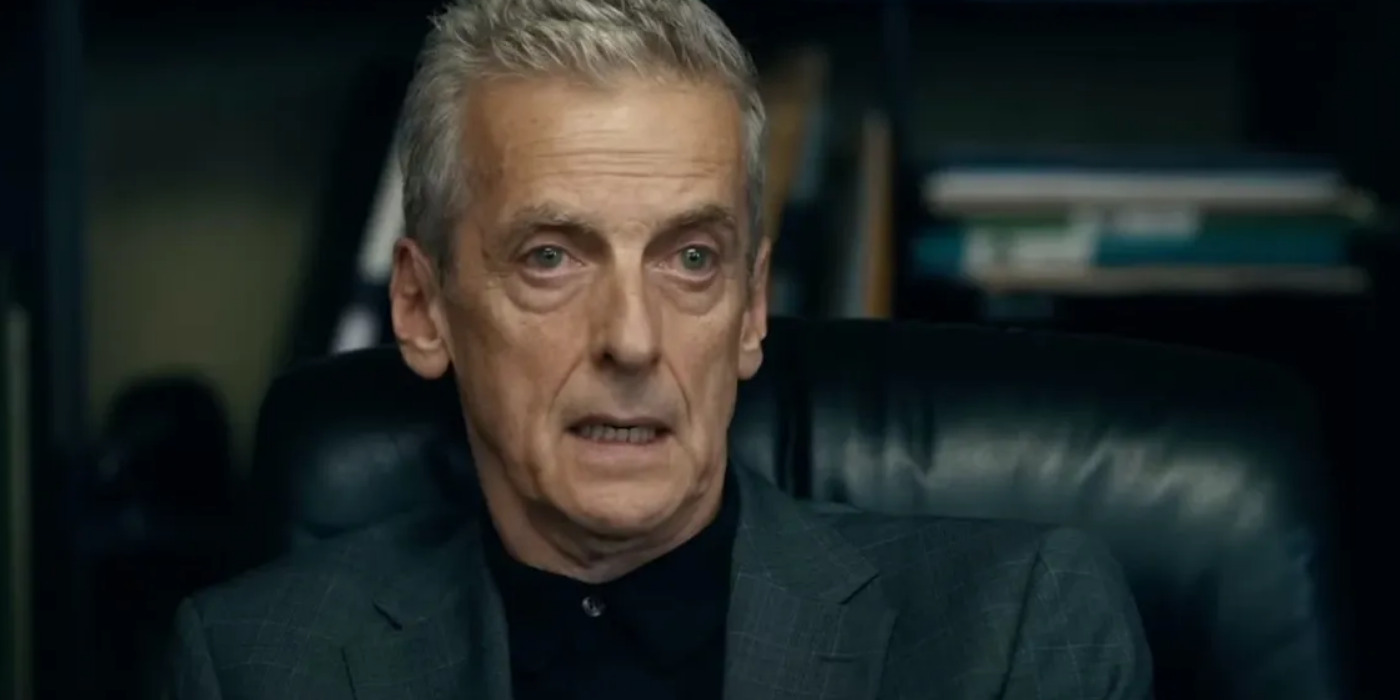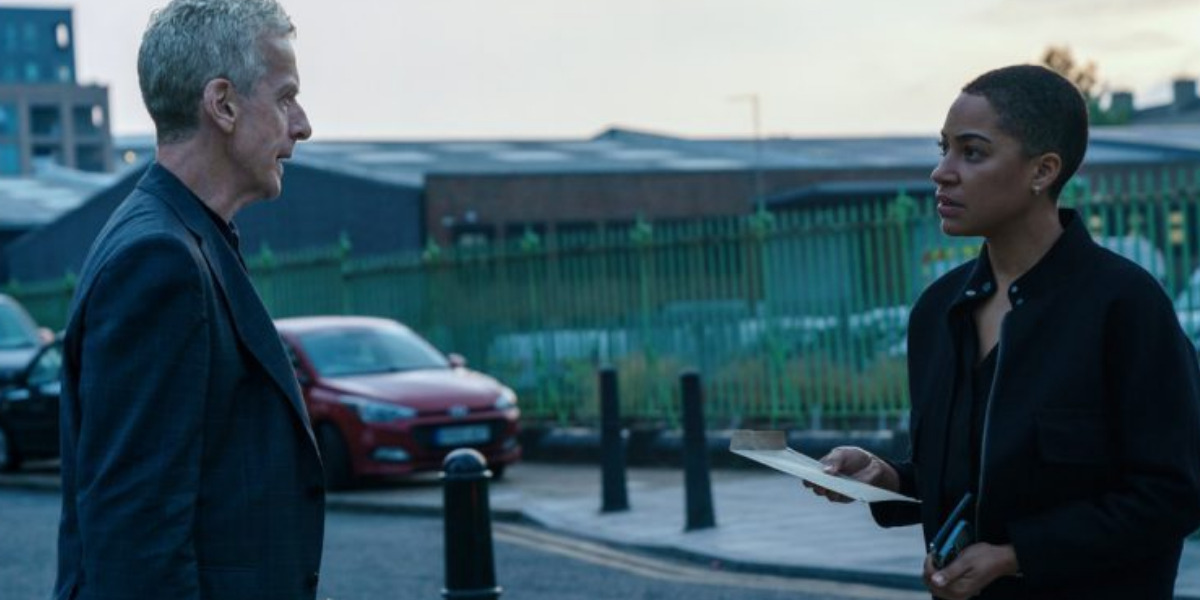Created by Paul Rutman, ‘Criminal Record,’ the British crime drama show, pitches two exceptional detectives against each other from opposite sides of the same criminal case. The 999 emergency services receive a tip that suggests Errol Mathis, convicted years ago for his girlfriend’s murder, might just be innocent. However, when the assigned Detective Sergeant June Lenker tries to reopen the case, DCI Daniel Hegarty, who put Mathis away all those years ago with a confession, stands as a boulder in her path. More than suspicious of Hegarty’s insistent refusal to rework a case that has the potential to ruin his reputation, Lenker decides to put her own life and career on the line to uncover the hidden truth about Mathis’ case.
In charting this cat-and-mouse chase between Lenker and Hegarty, which ends up unfolding more like a deadly game of chess, ‘Criminal Record’ delves into several prevalent social issues. The show’s exploration of the systemic racism within the police force isn’t simply a manifestation of its criminal genre. Instead, it remains the show’s thematic and narrative nucleus. As such, given the authenticity with which the show handles such realistic issues and plot points, viewers are bound to wonder if it has a real-life origin behind it.
A Fictionalized Crime Story Ripe With Realistic Plights
No, ‘Criminal Record’ is not based on a true story. Directed by Shaun James Grant and Jim Loach, with a screenplay written by Paul Rutman and Ameir Brown, this Apple TV+ crime show is a work of fiction without a basis in any real-life true crime. Thus, the events depicted within the show, including the central case, conviction, and investigation of Errol Mathis, are fabricated details. Nevertheless, the show’s fictionality hardly detaches its narrative from reality and social issues.

The show’s central conflict, the push and pull between Detectives Lenker and Hegarty, sprouts from Mathis’ conviction and an anonymous phone call that contests its legibility. Propelled forward by this allegation, Lenker investigates Mathis’ case to see if a false confession is at play. Nevertheless, Hegarty maintains that he carried out the initial investigation against Mathis without any stone left unturned.
Yet, Hegarty’s consistent attempts to interfere with Lenker’s new investigation send a different message. As such, the idea of a confession’s pivotal role in a murder conviction, a concept that has been of interest to creator Rutman and executive producer Elaine Collins for a while, became a firm cornerstone in the show’s creation. According to databases from The Innocent Project and The National Registry of Exonerations, two U.S.-based institutions, false confessions occur in 12 to 27 percent of wrongful convictions.
Therefore, the base premise of the show remains rooted in realism. However, more than that, the show’s attention to needling the systemic issue within the law enforcement institution forms the story’s most significant real-life connection. Within the show, Mathis and Lenker’s identity as Black individuals plays an instrumental role in their storylines that highlight racism and its intersection with misogyny (often termed as misogynoir).
Systemic racism within the police department has been a prevalent issue within Britain for a long while now, with recent years bringing more public and political attention to the same. An extensive 363-page report by Louise Casey delved into the Metropolitan Police Service and its internal culture. The report shined a light on the numerous stories of sexual assault and gender/race-based discrimination against the public by police officers. In the report, Casey also asserted that the “Met has yet to free itself of institutional racism.”
Alongside stories of discrimination against police officers/civilians of non-white racial and ethnic backgrounds, Casey detailed instances wherein the police abused their power against Black individuals. Excessive stop and search and use of force on powers were some indiscretions reported within Casey’s review. In the conversation that followed, Andy George, the chair of the National Black Police Association, also asserted the institutional nature of racism within the Met, even as Force Commissioner Sir Mark Rowley insisted on denying the label.
Consequently, the ideas presented in the ‘Criminal Record’ of helpless institutionalized failure, especially in cases involving Black individuals, remain on track with the real world of law enforcement. For the same reason, the show maintains a relationship with reality even though its storyline isn’t based on specific criminal cases or events.
Well-written, Realistic Characters
One of the most significant advantages that ‘Criminal Record’ boasts in its arsenal, in terms of realism, comes from its authentic, three-dimensional protagonists brought to life by Cush Jumbo and Peter Capaldi’s admirable performances. While discussing the origins of the show, Rutman divulged Jumbo and Capaldi played an instrumental part in the story’s inception.

“[And] The thing that really got us [Rutman and Collins] started was that Peter and Cush— Peter Capaldi and Cush Jumbo— who have worked together in the past were very keen to do something together, and they’d been talking to Elaine [Collins] about it,” Rutman told Popculture. “And then the three of them approached me and said, how about it? And I think very, very quickly, I think the idea presented itself of two detectives with completely different worldviews both kind of honing down a single case.”
Thus, the duo’s dynamic chemistry on screen, as essentially two ends of a spectrum, helped the show find its footing. Furthermore, the focus with which the narrative showcases the individual cost of such intense crimes on the people involved in the case sets the show apart from other similar stories. Capaldi made a comment on the same in an interview with Big Gold Belt Media and said, “You know, in most [crime] shows, you know, at the end of the episode, everyone that goes back to life is normal. That doesn’t happen to us [our characters].”
Ultimately, the show’s exploration of a darker reality within the law enforcement world helps shape its authenticity. Lenker’s intense frustration with her institution and the way it manifests, paired with Hegarty’s persistent moral ambiguity, adds complexity to the ‘Criminal Record’ that links their characters to real life. Therefore, the show’s authenticity receives a boost despite its fictional storyline.
Read More: Best Crime Movies on HBO Max


You must be logged in to post a comment.